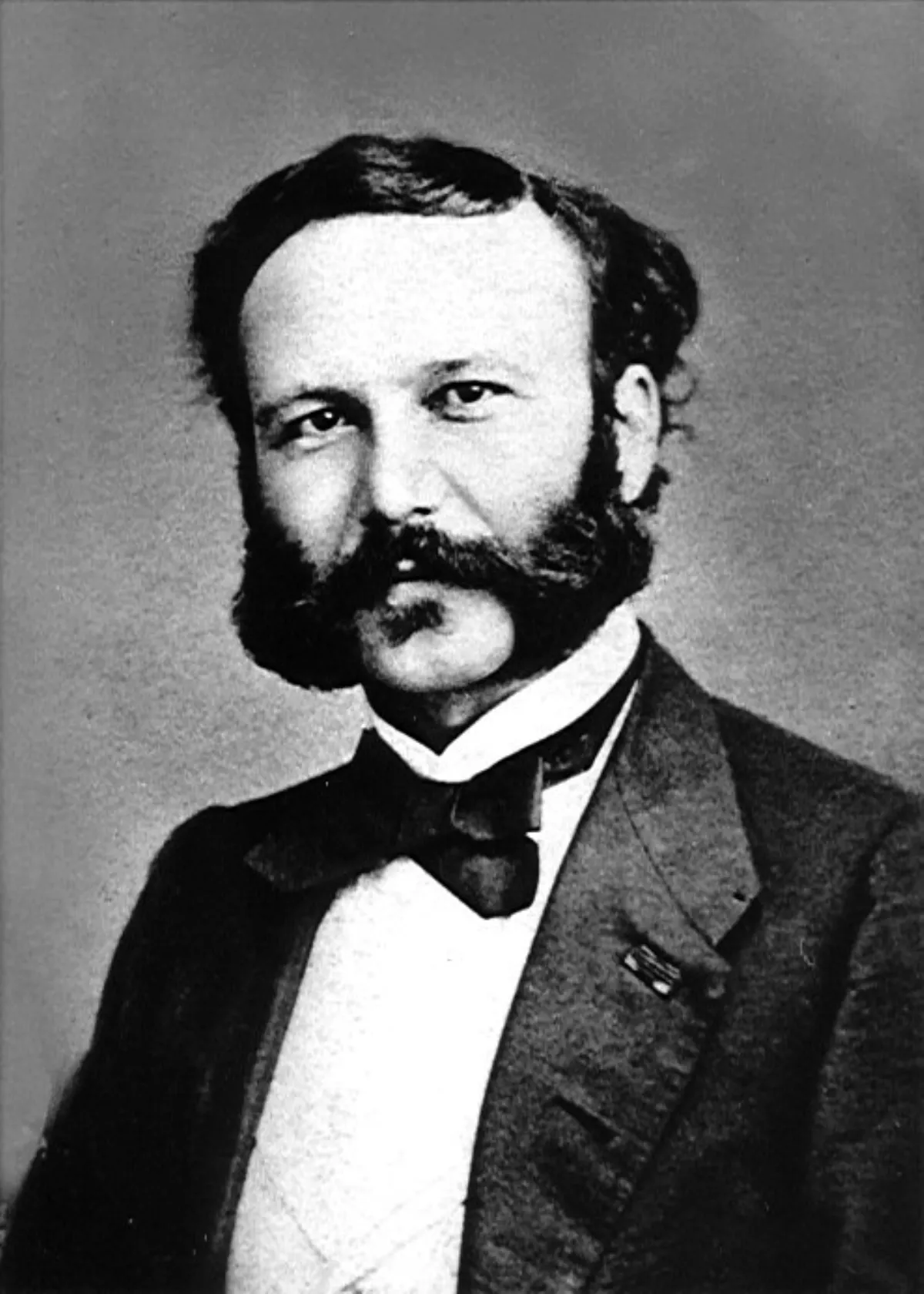 1.
1. In February 1863, Henry Dunant was a member of a five-person committee that sought to put his plan into action, which in effect founded the organization that would become the International Committee of the Red Cross.

 1.
1. In February 1863, Henry Dunant was a member of a five-person committee that sought to put his plan into action, which in effect founded the organization that would become the International Committee of the Red Cross.
Henry Dunant became embroiled in a business scandal in 1867 which resulted in his bankruptcy and expulsion from the International Committee.
Henry Dunant spent the next decades in poverty and obscurity, living in various places across Europe before settling in the Swiss village of Heiden.
In 1895, Henry Dunant was rediscovered by a journalist, which brought him renewed attention and support, and in 1901 he was awarded the first Nobel Peace Prize alongside French pacifist Frederic Passy.
Henry Dunant's family was devoutly Calvinist and had significant influence in Geneva society.
Henry Dunant's parents stressed the value of social work, and his father was active in helping orphans and parolees, while his mother worked with the sick and the poor.
Henry Dunant grew up during the period of religious awakening known as the Reveil, and at age 18 he joined the Geneva Society for Almsgiving.
In 1849, at age 21, Henry Dunant left the College de Geneve due to poor grades and began an apprenticeship with the money-changing firm Lullin et Sautter.
In 1853, Henry Dunant visited Algeria, Tunisia, and Sicily, on assignment with a company devoted to the "colonies of Setif".
Henry Dunant wrote a flattering book full of praise for Napoleon III with the intention to present it to the emperor and then travelled to Solferino to meet with him personally.
Henry Dunant arrived in Solferino on the evening of 24 June 1859, on the same day a battle between the two sides had occurred nearby.
Shocked, Henry Dunant himself took the initiative to organize the civilian population, especially the women and girls, to provide assistance to the injured and sick soldiers.
Henry Dunant convinced the population to service the wounded without regard to their side in the conflict as per the slogan "Tutti fratelli" coined by the women of the nearby city Castiglione delle Stiviere.
Henry Dunant succeeded in gaining the release of Austrian doctors captured by the French and British.
Henry Dunant developed the idea that in the future a neutral organization should exist to provide care to wounded soldiers.
Henry Dunant distributed the book to many leading political and military figures in Europe.
Henry Dunant began to travel through Europe to promote his ideas.
Henry Dunant's book was largely positively received, and the President of the Geneva Society for Public Welfare, jurist Gustave Moynier, made the book and its suggestions the topic of the 9 February 1863 meeting of the organization.
Henry Dunant's recommendations were examined and positively assessed by the members.
From early on, Moynier and Henry Dunant had increasing disagreements and conflicts regarding their respective visions and plans.
However, Henry Dunant continued to advocate this position in his travels and conversations with high-ranking political and military figures.
Henry Dunant was in charge of organizing accommodation for the attendees.
Henry Dunant was condemned by the Geneva Trade Court on 17 August 1868 for deceptive practices in the bankruptcies.
Henry Dunant moved to Paris, where he lived in meagre conditions.
Henry Dunant argued for disarmament negotiations and for the erection of an international court to mediate international conflicts.
Henry Dunant lived in poverty, moving to various places between 1874 and 1886, including Stuttgart, Rome, Corfu, Basel, and Karlsruhe.
Henry Dunant spent the rest of his life there, and after 30 April 1892, he lived in a hospital and nursing home led by Dr Hermann Altherr.
Sonderegger's wife founded a branch of the Red Cross in Heiden and in 1890 Henry Dunant became its honorary president.
Wilhelm and Susanna Sonderegger's admiration for Henry Dunant, felt by both even after Henry Dunant's allegations, was passed on to their children.
Henry Dunant received the Swiss Binet-Fendt Prize and a note from Pope Leo XIII.
Henry Dunant began an exchange of correspondence with Bertha von Suttner and wrote numerous articles and writings.
Henry Dunant was especially active in writing about women's rights, and in 1897 facilitated the founding of a "Green Cross" women's organization whose only section was briefly active in Brussels.
In 1901, Henry Dunant was awarded the first-ever Nobel Peace Prize for his role in founding the International Red Cross Movement and initiating the Geneva Convention.
However, another part of Nobel's testament marked the prize for the individual who had best enhanced the "brotherhood of people," which could be interpreted more generally as seeing humanitarian work like Henry Dunant's as connected to peacemaking as well.
Henry Dunant lived in the nursing home in Heiden until his death.
The Henry Dunant Medal, awarded every two years by the standing commission of the International Red Cross and Red Crescent Movement is its highest decoration.
Henry Dunant's life is represented, with some fictional elements, in the film D'homme a hommes, starring Jean-Louis Barrault, and the period of his life when the Red Cross was founded in the international film coproduction Henry Dunant: Red on the Cross.